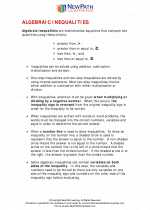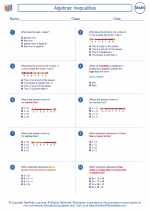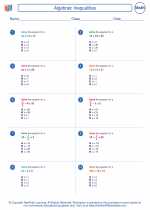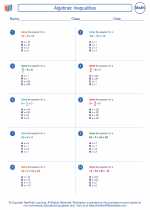Weight
Weight is a measurement of the force exerted on an object due to the pull of gravity. It is different from mass, which is a measurement of the amount of matter in an object.
Key Concepts:
- Units of Weight: Weight is typically measured in units such as pounds (lb) or kilograms (kg).
- Force of Gravity: The weight of an object is directly proportional to the force of gravity acting on it. On Earth, the standard acceleration due to gravity is approximately 9.81 m/s² or 32.2 ft/s².
- Calculating Weight: The weight (W) of an object can be calculated using the formula: W = m * g, where m is the mass of the object and g is the acceleration due to gravity.
- Weight vs. Mass: While weight and mass are related, they are not the same. Mass is a measure of the amount of matter in an object, while weight is the force exerted on an object due to gravity.
Study Guide:
When studying weight, it's important to understand the difference between weight and mass, as well as how to calculate weight using the formula W = m * g. You should also be familiar with the units of weight and the concept of the force of gravity.
Practice Questions:
- What is the difference between weight and mass?
- If the mass of an object is 10 kg, what is its weight on Earth? (Take g = 9.81 m/s²)
- Convert 100 pounds to kilograms.
- Explain how weight varies on different planets.
By understanding the key concepts and practicing with these questions, you'll build a strong foundation in the topic of weight.
.◂Math Worksheets and Study Guides Seventh Grade. Algebraic Inequalities
Study Guide Algebraic Inequalities
Algebraic Inequalities  Worksheet/Answer key
Worksheet/Answer key Algebraic Inequalities
Algebraic Inequalities  Worksheet/Answer key
Worksheet/Answer key Algebraic Inequalities
Algebraic Inequalities  Worksheet/Answer key
Worksheet/Answer key Algebraic Inequalities
Algebraic Inequalities 

 Worksheet/Answer key
Worksheet/Answer key
 Worksheet/Answer key
Worksheet/Answer key
 Worksheet/Answer key
Worksheet/Answer key

The resources above cover the following skills:
Algebra (NCTM)
Represent and analyze mathematical situations and structures using algebraic symbols.
Use symbolic algebra to represent situations and to solve problems, especially those that involve linear relationships.